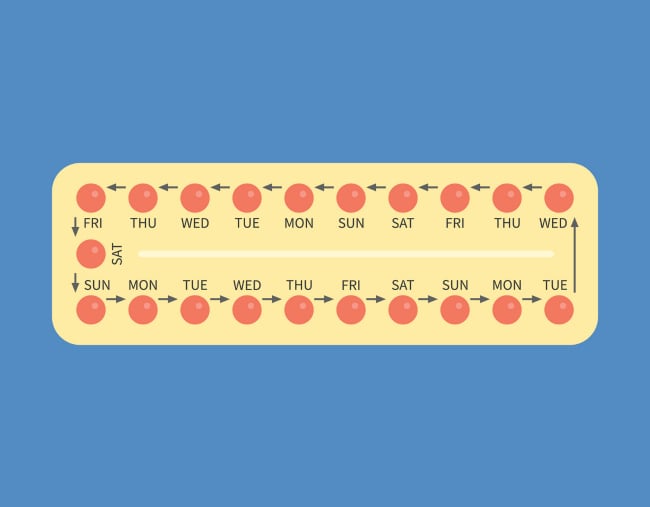How many pairs of undies have you lost to unexpected spotting during your menstrual cycle? A couple? More than five? Too many to count?
They were just in the wrong place at the wrong time! you wail, sending yet another innocent, unsuspecting pair of undies off to the underwear graveyard.
They’re in a better place.
More than costing you a fortune in ruined knickers, spotting (otherwise known as breakthrough bleeding) mid-cycle is just bloody annoying.
No one wants to nip to the loo only to find some red or brown smudges on their ‘special occasion’ undergarments you reserve for when you’re expecting a visitor that’s not your period. Nor do we want to wear panty liners every single day. They’re kind of uncomfortable, and peel off when things get hot down there.
Many women take the contraceptive pill not only for contraceptive protection, but also convenience. To know when our period will come and how long it’ll be sticking around for. So why, when you’re taking medication to regulate your menstrual cycle, can things become irregular?
In honour of all the good undies we’ve lost over the years, we asked Melbourne-based obstetrician and gynaecologist, Dr Joseph Sgroi what spotting while you’re on the contraceptive pill means, why it can happen and if you should be worried if it does.
How does the pill work?


